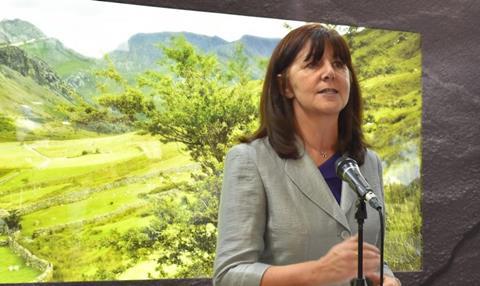The Welsh Government has said it is making £1 million available to support new projects which can help reduce ammonia emissions produced by livestock.

The focus of this Small Business Research Initiative (SBRI) is the agriculture sector in Wales. The challenge will aim to help businesses develop innovative products and services which can make a real difference to lessen the harmful impacts of the pollutant on the land and in the atmosphere.
Atmospheric ammonia is a primary pollutant emitted by agricultural activities, with most of the ammonia coming from the natural breakdown of animal by-products.
The Welsh Government said that the cattle industry, particularly the dairy sector, for instance, has high levels of ammonia emissions which is attributable to the production cycle.
SBRI connects challenges with innovative ideas from industry, enabling organisations to utilise emerging technology and new solutions to tackle problems whilst supporting businesses to develop and grow.
Businesses will be given the opportunity to put together robust evidence packs demonstrating how their projects can reduce ammonia emissions and are in line with the UK Air Quality inventories.
Rural Affairs Minister Lesley Griffiths said: "Tackling ammonia emissions in Wales is an important issue.
"We know most ammonia emissions come from the agriculture sector and so the challenge we are putting to businesses is primarily focused on this.
"I encourage everyone with an interest in making a real difference to how we address this matter to apply for support."
HCC takes a step toward sustainability in the red meat industry
Hybu Cig Cymru - Meat Promotion Wales (HCC) has also ascertained a biodiversity baseline by undertaking a number of biodiversity audits as part of the Hill Ram Scheme under the wider Red Meat Development Programme.
With the establishment of the benchmark, HCC said it has taken a significant step towards realising its long-term aims of promoting environmental sustainability within the red meat industry.
The baseline will provide a clear understanding of the intricate ecosystems nurtured within Wales by red meat farms, reinforcing the evidence that underpins the PGI Welsh Lamb and PGI Welsh Beef brands.
Key to the variance in habitats has been the combination of livestock production methods along with agri-environment incentives which have shapes and maintained biodiversity whilst producing high-quality red meat.
Rachael Madeley-Davies, HCC's head of sustainability and future policy, said: "The development of this biodiversity report represents a crucial first step in reaching our long-term aim of evidencing that Welsh farmland not only produces world-class red meat, but plays an important role in the development and maintenance of habitat.
"Each farm contributes much more than just livestock production; everything from managing landscapes, preserving wildlife, protecting water courses and promoting public access routes play a role in the cultivation of biodiverse areas."
The findings will act as a platform for wider data gathering focusing on the total environmental footprint of Welsh red meat, including carbon, soil quality, air quality and water quality.
This story was originally published on a previous version of the Meat Management website and so there may be some missing images and formatting issues.















